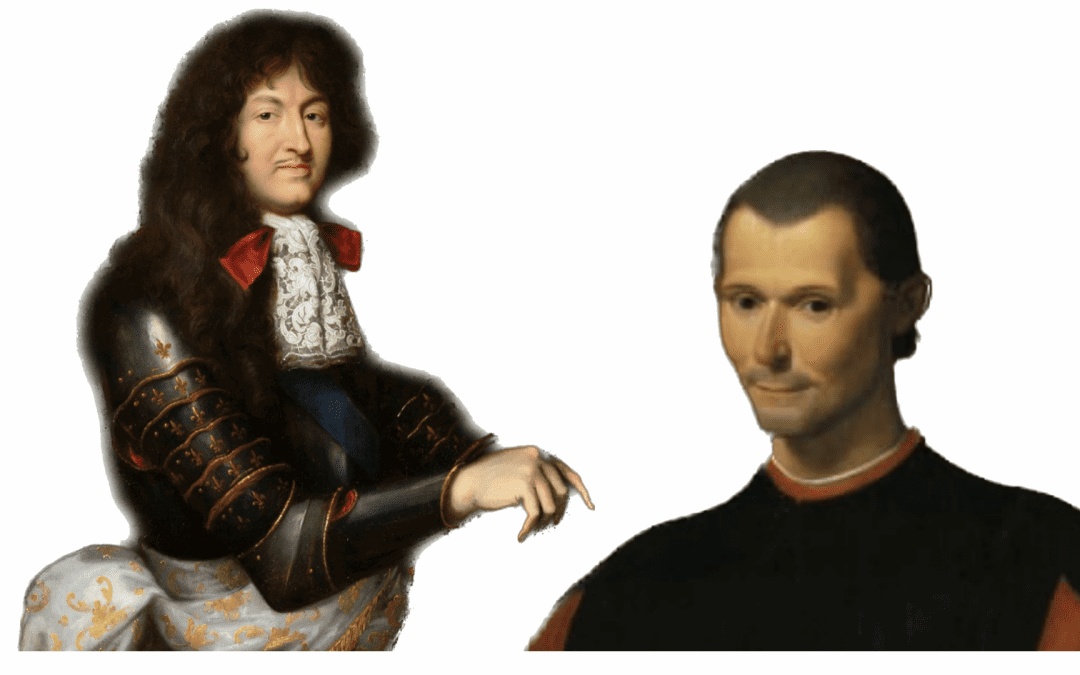I have Niccolo Machiavelli and Louis XIV of France, as my options today, for an “on this day” style post. In 1512 the Medici family expelled Machiavelli from Florence, and in 1651, Louis became of full age and absolute monarch in his own right.
Machiavelli’s philosophy is that for a Prince to acquire power, and exert it effectively, unethical methods may be required. I think we can do Machiavelli justice, simply by considering Louis XIV.
Cardinal Mazarin, his chief minister, died in 1661. Louis then established a system of absolute monarchy. He built a centralised state around Paris. Louis enforced unity of religion through Catholicism, and revoked his grand-father’s Edict of Nantes. He thereby forced Protestants to convert, or emigrate. Louis reigned for 72 years and 112 days.
During his reign, Louis made France the dominant European power. He believed that war was the best way to enhance his glory, and spent any peacetime preparing for the next war. You may be struggling to understand why he was known as the “Sun King”.
His father, Louis XIII, was not what you might call a ladies man. His wife, Queen Anne, had been married to Louis for 23 years by the time he was born. She suffered four still-births in the intervening time. So when she gave birth to an heir that did survive, he was known as God’s gift, or Sun King.
Alexandre Dumas set his book, The Man in the Iron Mask, in the reign of Louis XIV. Dumas suggests that the man in the iron mask is Philippe, the brother of Louis. I’m looking forward to working my way towards this period in my Sir Anthony Standen Adventures. It will take a while though. I’m awaiting a biography of Louis XIII. Louis XIII is a key character in The Suggested Assassin, but he is still under his mother’s regency. I think she came across as rather Machiavellian in that book, but I hope I showed my readers why. It was hard for a woman to have any power in those days.

